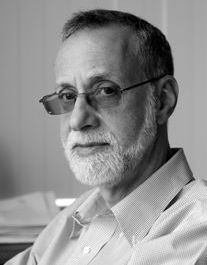Speech before General Medical Disciplines Executive Committee Meeting
Mark Cullen, MD started as Chief of the Division of General Medical Disciplines on May 1, 2009, see Newsmakers, Spring 09. Synopsis of the speech before Executive Committee on the eve of his tour of duty:
 Mark Cullen, MD
Mark Cullen, MD
It’s an honor and a privilege for me to assume the helm of GMD here at Stanford, but also a daunting challenge. After many years directing a small, niche program in occupational and environmental medicine at Yale, at the fringe of Department of Medicine, this new job finds me all of a sudden at the very epicenter of the maelstrom sweeping academic medicine, and indeed medicine generally. The demands are mind boggling: our primary care and hospitalist practices must be radically transformed to align with the needs of the community, yet in the context of ever-changing economic realities.
At the same time and in the same settings we have little choice but to develop new paradigms for training our medical students and post-graduates, responding to new teaching mantras while assuring none of the rigor or excellence of past eras is compromised, all the while remain faithful to our core values of health equity and a broad and liberal educational mission. These exigencies alone would keep even the most experienced incumbent of this job awake nights, but as you all know there’s even more on my proverbial plate. DGMD at Stanford has undergone progressive and severe academic fragmentation over the past two decades, during which time many of the exciting and relevant research areas traditional to GM—prevention, health services, health information science among them—have migrated to sister divisions, leaving us heavy on service and teaching demands, and bereft of opportunities to provide them in the context of advancement of academic knowledge and research, the trademark of academic medicine.
A less foolhardy soul would probably despair and declare the convergence of these three needs at a single point in time an irreparable catastrophe. But to paraphrase President Obaam, whose reckless vision and hopefulness I’m inclined to share, no disaster of such magnitude should ever go wasted! And I’ve got some good things going for me. The Chairman of Medicine, himself a former Chief of GMD, understands the issues better than most any Chair could, and has anteed up many of he resources to assist us at this crucial juncture.
More important still, for all the struggles and dissatisfactions I have learned of as I have met the faculty, the reality is that I am blessed with an extraordinary group of mostly young, brilliant and highly motivated men and women, supported by a wonderful supporting cast of seasoned and sage ones, not least of whom Peter Rudd, my predecessor. And with the energetic help of our Manager Morisa Guy, we have assembled an all-star support staff of which other Divisions are already jealous. So improbable as it may seem today, I predict that with some cooperation all around, some hard work and patience, and just a little tiny bit of luck we can surmount the challenges and thrive, not only to serve with distinction in the Department but as a national model of what GMD—a field whose time has come-- can and will be in the future.
